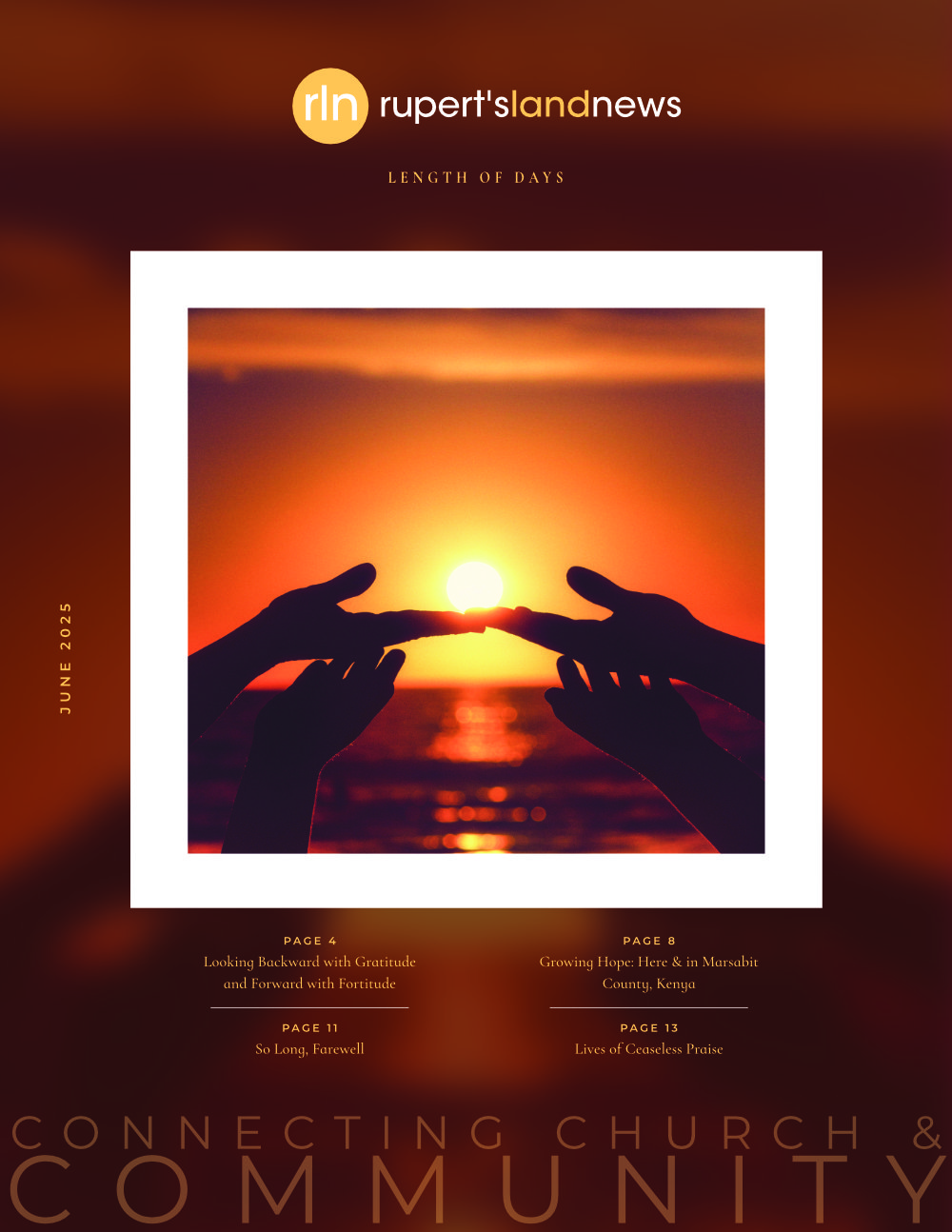
Looking Backward with Gratitude and Forward with Fortitude: An Interview with Bishop-Elect Rev. Naboth Manzongo
RUPERT’S LAND NEWS: What do you like to do in your free time? REV. NABOTH MANZONGO: I spend time with my wife, Thelma, and my three children, Emily (11), Ngoni (7), and Amy (9 months). I love gardening. I enjoy working in the soil, growing my own food, because that’s

June Issue: Length of Days
To begin this issue, I got a chance to sit down and chat with our new Bishop-Elect, Rev. Naboth Manzongo. In this interview, he shares his interests and hobbies, information about his prayer life and ministry, and some of the lessons he has learned throughout his life. Then, on behalf

The Burning Ember
There have been times in my life when I was faced with situations that called into question who I was. These periods of confusion, suffering and difficulty prompted me to look for answers. I was asking myself a lot of questions and reproaching myself for not having done my best,

Armour of God? Isn’t Jesus Supposed to be the Prince of Peace?
In the final section of the New Testament Letter to the Ephesians, the author begins with this statement: “Finally, be strong in the Lord and in the strength of his power. Put on the whole armour of God, so that you may be able to stand against the wiles of

David’s Clothes
Later this month, we will gather to choose your next Bishop of the Diocese of Rupert’s Land. (I say “we” because I will be joining you as a prayer partner and observer for the Synod.) At that time, we will be recognizing and acknowledging the priest whom God has known

Thank You and Thank God — A Farewell Letter
Dear Disciples, Friends, Everyday I pray with thanksgiving for the episcopal ministry we have shared. Filled with the capacity and yearning to offer and share thanksgiving as a way of life, we have journeyed in a joyous and meaningful relationship in God, and in communion with one another and the

May Issue: The Whole Armour of God
This issue begins with a farewell from Bishop Geoff. He reflects on the journey that he has shared with all of us during his time as Bishop in the Diocese of Rupert’s Land, and how we can look to the future of the Church with hope. Before we welcome our

A Bishop’s Point of View
Hello Rupert’s Land Anglicans! Allow me to introduce myself. I am The Right Reverend Rachael Parker (aka “just call me Bishop Rachael”) and I am the 8th Bishop of Brandon. As I write this article, I am 3 days away from the first anniversary of my consecration as bishop, so

Introducing the Anglican Poetics Project
The celebrated American poet Christian Wiman recently published a collection of poetry, memoir, and literary criticism entitled Zero at the Bone: Fifty Entries Against Despair. I started reading it on New Year’s Day this year, hoping against hope that something in there would keep the despair at bay, at least

The Holy Potluck
The God of love, whom we are experiencing now in this time of Easter, shares His love by providing food for the hungry and offering up the bread of life for us who desire it. One way that I have been shown this love is by being fed. Food plays



